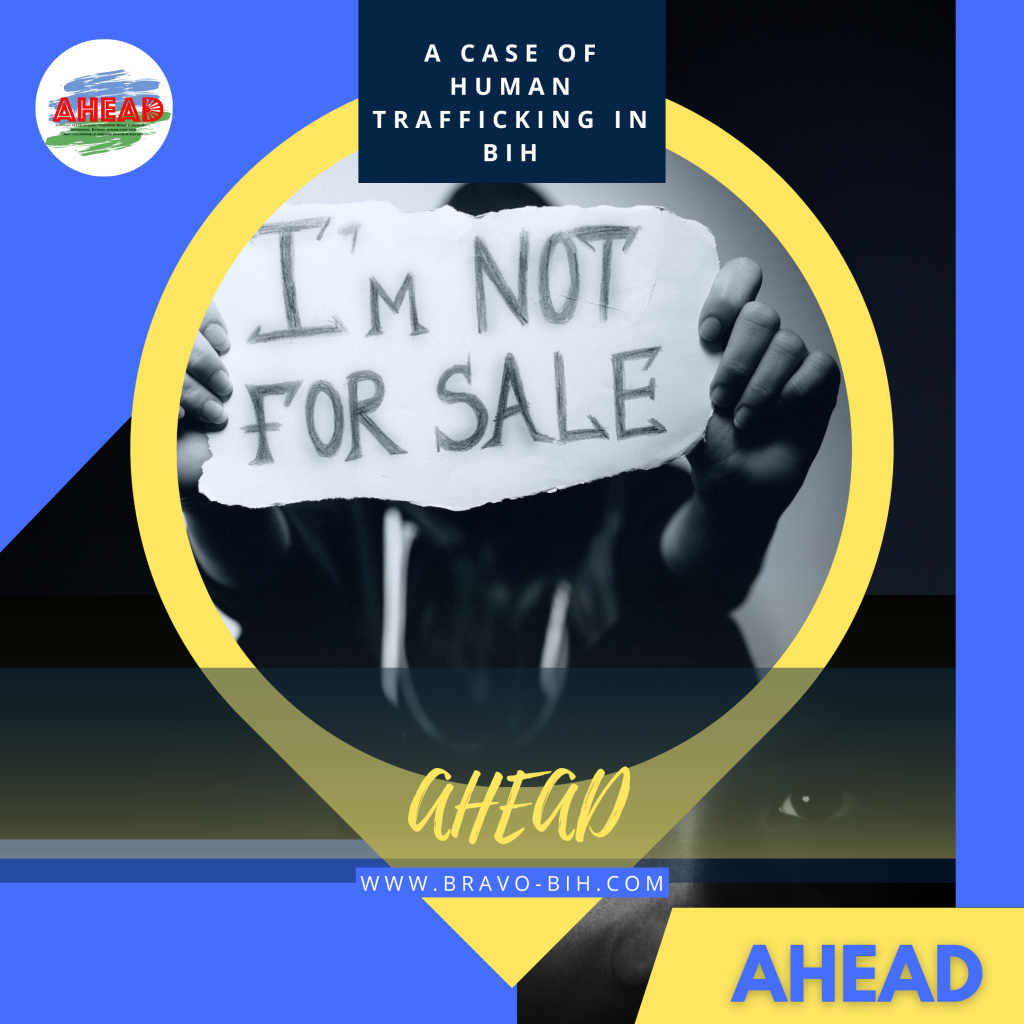
Every year, two to four million people are traded in the world, while annual revenue from human trafficking is between 7 and 13 billion dollars. Accordingly, human trafficking and illegal migration generate profits as well as drug trafficking. These are the official estimates of the UN and also the largest percentage of the total number of victims of this form of organized crime is made up of younger people, women and children, almost 80%, while 70% of these women were sold for sexual exploitation. In addition to forced prostitution, the victim is often exploited for other purposes such as pornography, forced marriage, slave labor, begging, illegal adoption, and trafficking of human organs… A smaller number of victims are also men, who usually end up as slaves. However, in Bosnia and Herzegovina, the Roma are the most exposed to human trafficking. It is a consequence of their social position. In recent years, the largest number of cases is exploitation for the purpose of organized begging.
The fact is that the victims in large percentage are women, children and minors. As for the law in Bosnia and Herzegovina in the last two years, there was a very serious judgments when it comes to human trafficking, including Roma. This was most visible in the Tuzla Canton in Federation of BiH. There were verdicts of five or even 10 years for people who trafficked Roma children into begging.
Considering the fact that in the last 5 years the migrant population in BiH has been increasing significantly, according to research, the number of cases of human trafficking has also increased. So that in Bosnia and Herzegovina, not only Roma are victims of human trafficking, but also migrants who testify about it more and more publicly. The migrant children and especially unaccompanied migrant children have become another extremely vulnerable group to trafficking in human beings. . Since there is no effective age assessment procedure for migrant children, many children have never been registered and remain extremely vulnerable to trafficking. Besides the communication barrier, identification of victims among migrants is sometimes hindered by their fast transit through the country and therefore lack of resources for public authorities in BiH to keep track with or provide support to migrant children. Investigation, protection and prevention measures for child trafficking are especially needed as the exploitation of children and violation of their rights have dramatic negative effects on children and society as a whole.
Roma people in BiH are generally recognized to be the largest, most neglected and most vulnerable minority in the country, living in a state of chronic, multidimensional poverty. The literature about human trafficking in BiH confirms that Roma children are routinely mentioned as one of the most at risk of being trafficked. It should be recognized however, that the existing perceptions about the Roma population and the stigma attached to these could have adverse effects on the identification of victims of trafficking by frontline professionals, who either may fail to recognize signs of trafficking when it occurs or, on the contrary, qualify as cases of trafficking Roma cultural practices which are harmful to children.
There are no specific culturally ingrained practices that make Roma vulnerable to trafficking. Rather, socio-economic factors such as poverty, large-scale unemployment and low levels of education, resulting from a history of social exclusion of the Roma, make the minority group especially vulnerable to trafficking. Not to mention the fact that the COVID-19 has put Roma families into a position of further insecurity and vulnerability, hindering their access to basic services and therefor increasing the risks for Roma children of being trafficked.

In BiH non-governmental organizations and other associations have a very important role in prevention of this problem i.e., raising public awareness of this problem through strengthening the capacity of these groups. Also, in the part that refers to the assistance and protection of victims human trafficking and rehabilitation processes. This is especially important for NGOs that have safe houses or shelters for victims of violence or human trafficking where the competent authorities provide accommodation for victims and where they receive all the necessary help and protection.
Currently, there are some Roma associations and other NGO’s that work to raise awareness about this, but also educate society about the prevention of this problem. Our goal is to raise awareness and work in schools on this topic, which we consider important, but also to give space through the governmental mechanisms to marginalized groups in society to have equal opportunities.
